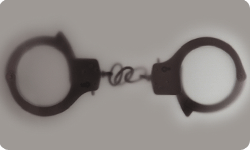Anti-terror law reforms: fear wins
 Aggy Kapitaniak
Aggy Kapitaniak
Liberty is disappointed with the proposed reforms of the terror laws as outlined in the Attorney-General’s 500-page discussion paper. Liberty’s anti-terror law sub-committee wrote a submission expressing disappointment in relation to the proposed changes that we say don’t go far enough. You can access the full submission on our website, but here is a flavour.
We stated that these proposed reforms needed to be read in light of these matters: the serious failure on behalf of our security authorities in relation to the Dr Haneef affair; serious intrusions by authorities into particular communities who have been targeted as terrorist or potentially terrorist; and extremely lengthy and expensive trials in terrorism matters, in part occasioned by the complexity of the laws in question.
One main criticism is the proposed extension of the meaning of ‘terrorist offence’ to cover reference to ‘psychological harm’. It is likely to greatly expand the scope of already broad legislation. Psychological harm is recognised by the courts as extending broadly — see, for example, Giller v Procopets (No 1) [2008] VSCA 236, where the court divided on the precise degree required.
Take a situation in which a particular international sporting event were to be held in Australia, and the administrators refused to permit a team from a particular country to compete because of the policy of that country on some particular issue — such as its treatment of an oppressed section of the population. It is reasonably foreseeable that this would cause psychological harm to athletes from that country. It is difficult to see how this would not become a terrorist act under this provision. Liberty was critical about this proposed expansion.
The provisions to hold a person in custody during investigation for terrorist offences came to the public’s attention in the case of Dr Haneef. The sections have only been used twice, so far as Liberty Victoria is aware: in relation to the questioning of Dr Haneef over many days, and in relation to the questioning of one of the recently charged Somalis, who was questioned for several hours.
Under the current proposals, the outer limit of detention remains undefined. Liberty argued that it was unsatisfactory, after the controversy surrounding the Dr Haneef affair, and the Clarke Inquiry which succeeded it, to leave the outer time for detention of suspects for questioning undefined. Further, we submitted that even an outer limit of eight days cannot be justified from experience to date. The time limit should be no greater than for non-terrorism offences.
Most disappointing was the exclusion of areas for reform. There are several serious issues in relation to the terror laws which are not dealt with in the review, but in our submission should have been. These include in particular: control orders, the use of which in relation to Jack Thomas and David Hicks (the only two occasions these provisions have been used) was controversial, unnecessary, and ultimately discontinued; preventative detention orders, which have never been needed; ASIO powers, notably the power to hold in custody for questioning both suspects and non-suspects; and the offence of ‘association’ with terrorist organisations, which has wide effects on those who belong to particular communities with unavoidable ties to organisations which have been listed as ‘terrorist’.
Overall we remain unconvinced that a separate regime of legislation in relation to terrorism offences can be justified and are hoping that this call will be heard loud and clear.
Aggy Kapitaniak is a barrister and Liberty Victoria committee member.
